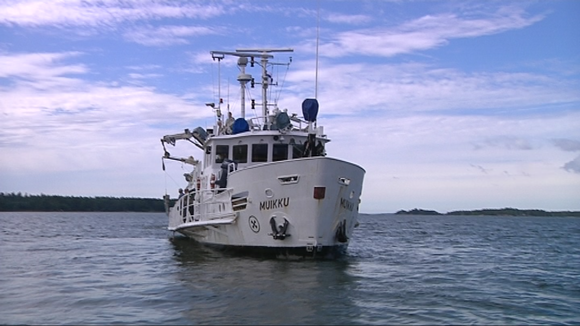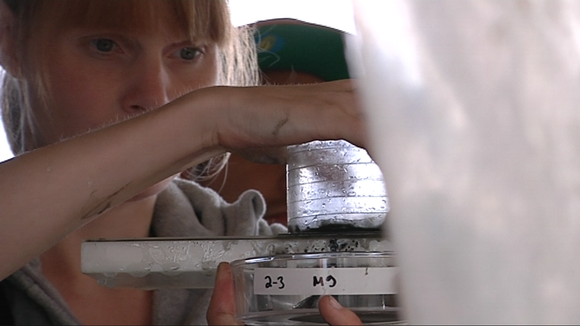Microplastics – the latest threat to the Baltic
Microplastics are small particles of plastic in the environment, so tiny as to often be invisible to the naked eye. While progress has been made to reduce more traditional types of pollutants entering Baltic Sea waters, microplastics are a new and growing threat.
For the second summer in a row, the Helsinki Environment Centre is coordinating a study examining the state of the Baltic Sea off the coasts of Helsinki and the neighbouring city of Espoo.
Pollutants have long plagued the waters of the Baltic, but some localized improvements have been seen, for example in its most eastern reaches where wastes from St. Petersburg have been sharply reduced.
However, a new threat has appeared – microplastics.
These tiny particles of plastic come from many sources such as industrial processes, the wear from car tyres that gets picked up along with winter snows and melts out of dump sites, as well as from clothing fibres that slip through sewage purification plants and into the sea.
The goal of project researchers this summer is to identify the origin of microplastics in the Baltic off Helsinki and Espoo.
“Right now, we are looking at sewage treatment plants. Along with people’s laundry water come microscopic wastes such as artificial fibres from clothing that are very difficult for treatment plants to remove from the water,” explains Julia Talvitie, a research assistant aboard the survey vessel Muikku.
Once in the sea, plastic is there to stay. There are fears that these particles of plastic will collect in small organisms, creating the danger of them entering the food chain.
“Plastics contain harmful compounds and they also bind with environmental toxins. Microplastics have been found to contain up to a million times the concentration of toxins as in the surrounding waters,” says Talvitie.





